A deep green future for Balinese tourism
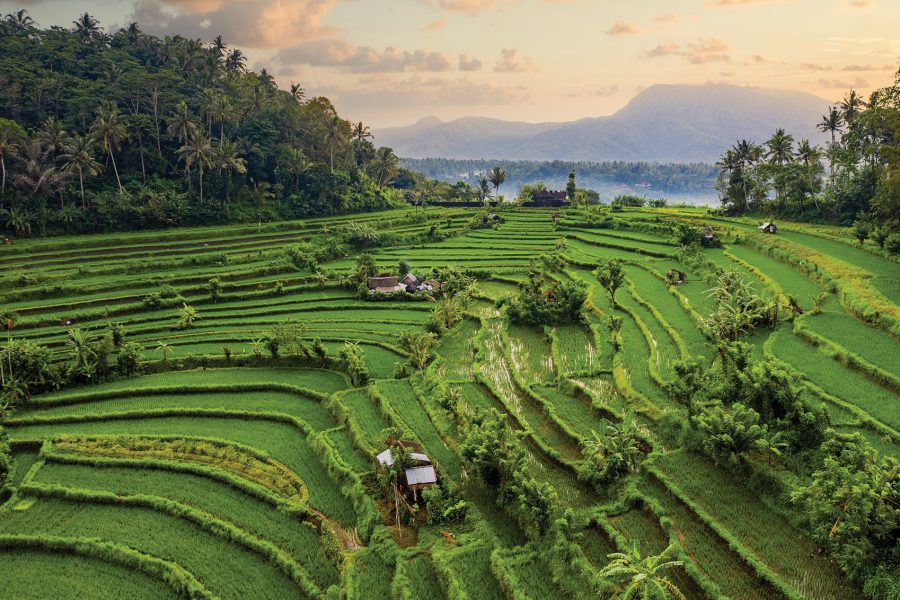
Sintia Dewi’s fingers brush past the long grasses, the fat clusters of rice grains showing harvest is nearing. She takes shade from the simmering heat by a shrine honouring the ancient subak irrigation system, which farmers have relied upon for more than a millennium.
“Can you imagine what would happen to Bali if the rice fields all turned into developments?” she asks. “People wouldn’t come here.”
Dewi is managing officer at the Begawan Foundation , which has a farm based 15 minutes outside Ubud in central Bali. Ubud’s expression of the Balinese way of life, centred on its connection to nature, draws artists, yogis and free-spirited travellers from across the world.
After all, there are few places on Earth quite like Bali. A place of perfect sunsets, soft-sand beaches, tropical forests, crystal waters and pure air. But after captivating visitors for decades, the Indonesian island is now grappling with rising tourist numbers and relentless development, which run the risk of depleting its resources and polluting its environment.
While lawmakers debate a moratorium on new resorts and a cap on visitor numbers, Balinese people are working both within their local communities and with the tourism industry to restore balance to the land.
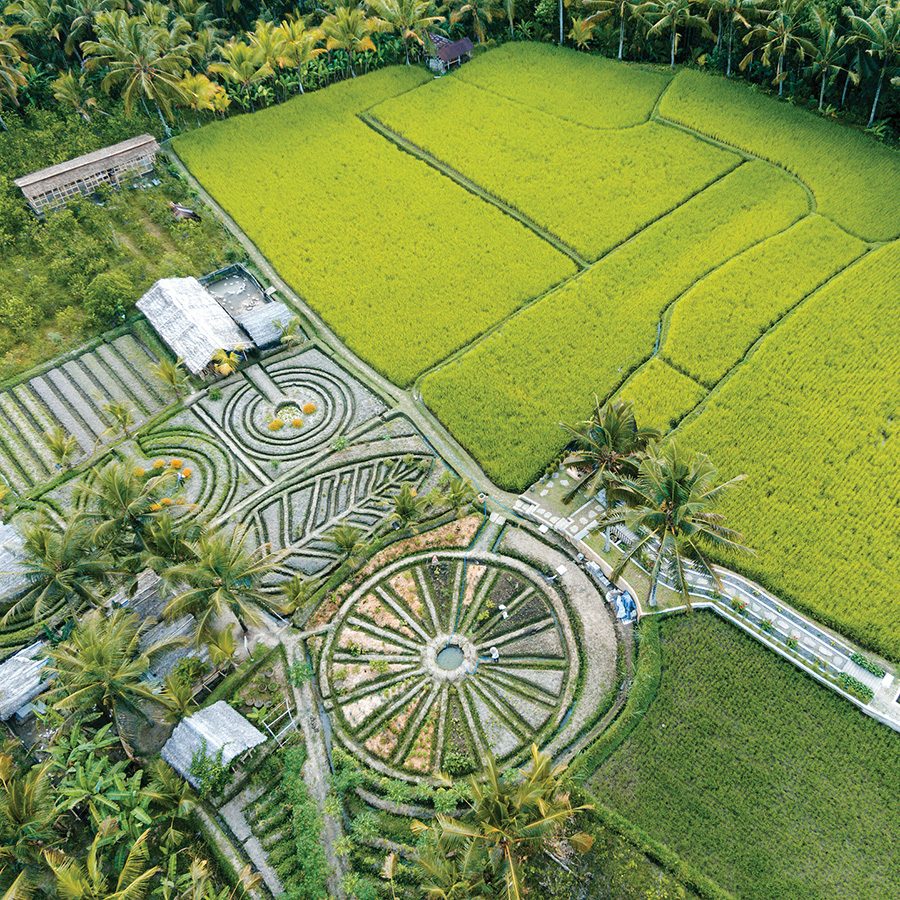
Credit: Getty Images
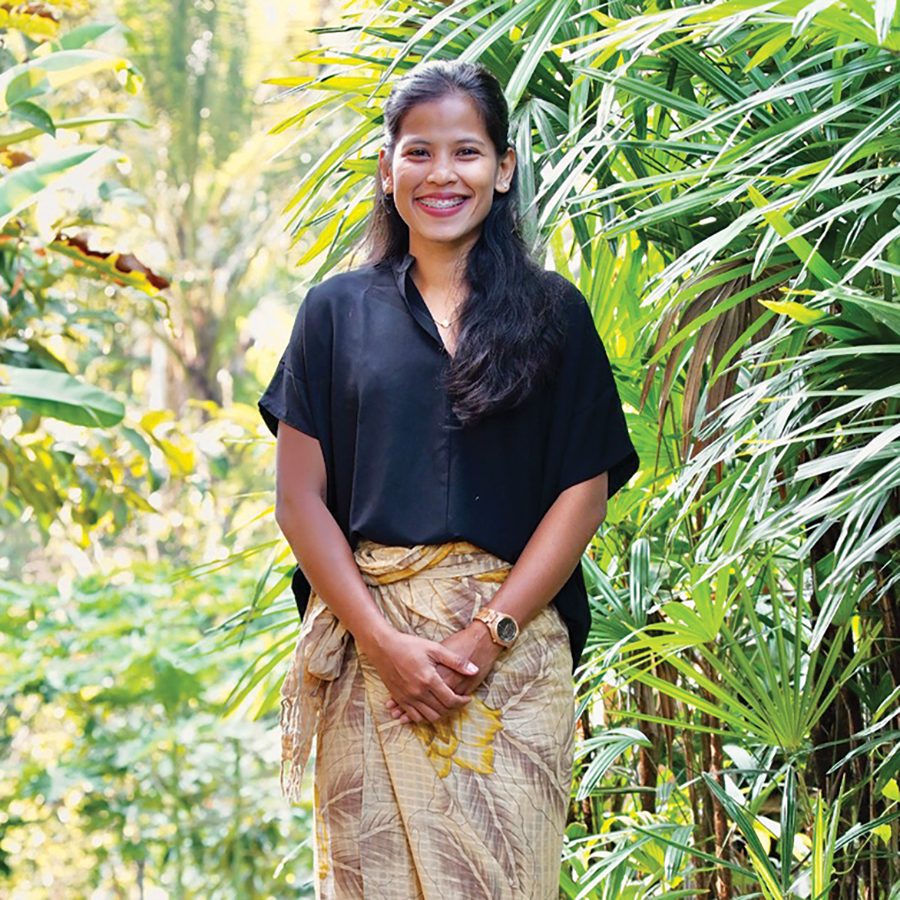
Credit: Begawan Life
Paradise cost
Among its programmes, Begawan promotes a return to growing Bali’s heritage rice with regenerative methods designed to rejuvenate soil quality. Despite rice paddy planting beginning only last year, there’s a clear appetite for this approach. “Trust is gained, not given,” says Dewi. “We started with one farmer and less than a hectare.” By the fourth cycle in August, the project spanned five farmers and two hectares. Demand is already high among luxury hotels like The Legian Seminyak and Potato Head , which serve traditional Balinese dishes made with Begawan rice, providing farmers with a stable income – and visitors with a taste of the land.
Guests staying in one of the six villas at Desa Hay in Canggu might notice slippers made from coconut husks, no plastic amenities, and air conditioning that turns off when the doors to the private garden are opened. But what they won’t see are the 100 energy efficient solar panels that power the hotel, the recharge wells and wastewater processing, the recycling and composting of waste, and the sponsorship of local NGOs.
“It is about being involved and sharing our sustainability vision whenever and wherever we can,” says general manager Yohanes Barlianto, an advocate for greener hospitality and a regular participant of industry panels and government meetings on creating a premium yet eco-friendly experience for guests.
The Potato Head group was the first to tackle sustainable hospitality head-on. Owner Ronald Akili’s philosophy around sustainability spans not just the environment but also sustaining culture and community for generations to come. “Mass tourism has been so destructive, and has taken away so much from certain destinations – but it has the potential to be something positive,” he says. “If we don’t change how we do things now, the next generation won’t have anything left.”
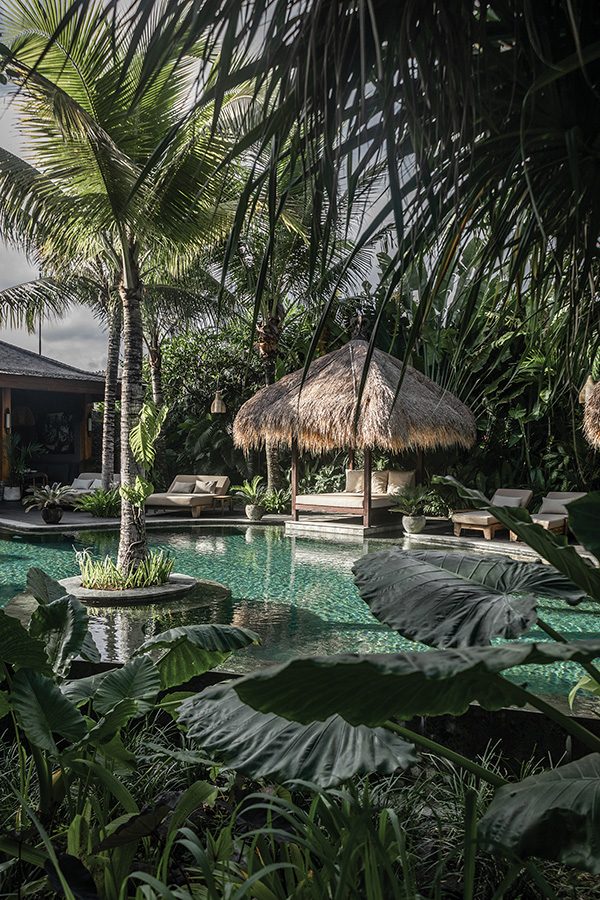
Credit: Alexis Dornier Architecture Studio
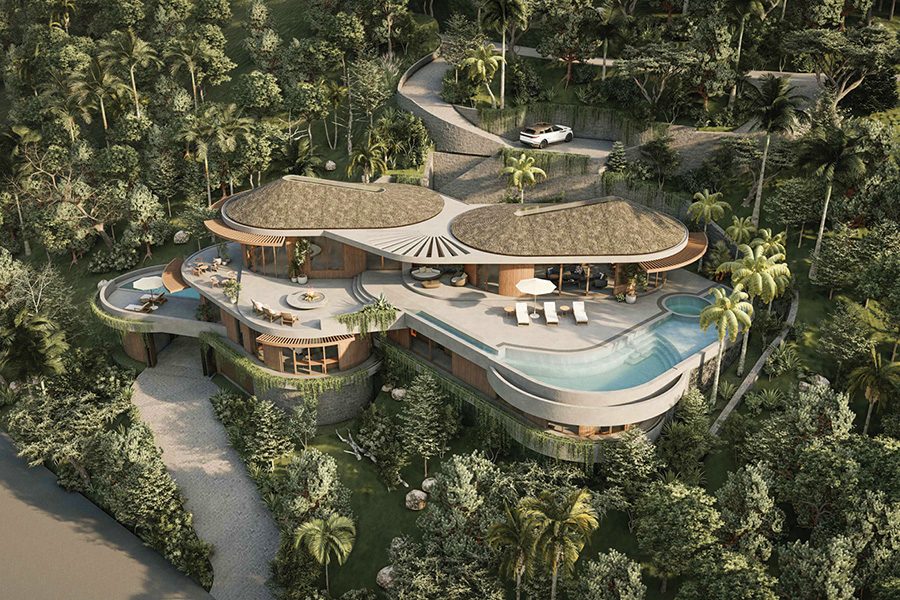
Credit: Alexis Dornier Architecture Studio
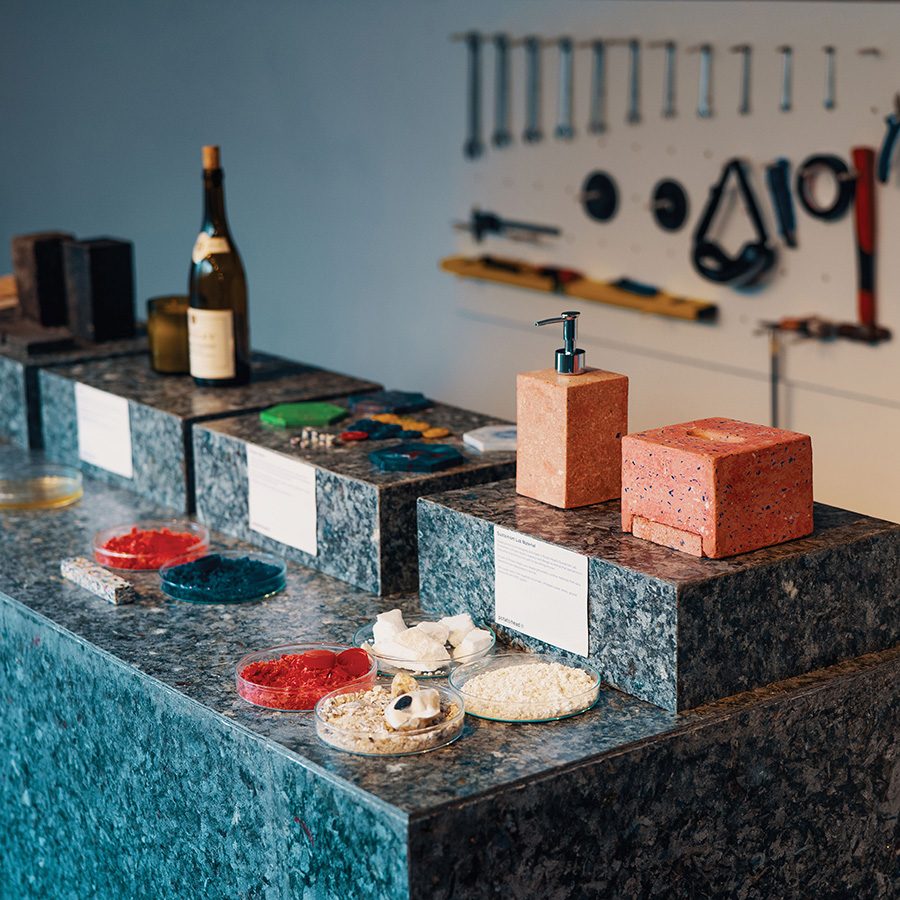
Credit: Alexis Dornier Architecture Studio
Green revolution
Indonesia is the second-most prolific plastic polluter in the world, and the evidence is there for all to see on the less managed of Bali’s beaches. Potato Head operates at close to zero waste thanks to working with Eco Mantra , an enterprise driving greener hotels through intelligent building design, serious behind-the-scenes engineering and audits that prevent greenwashing.
“Bali used to be so beautiful, but we were put under stress as more and more construction came,” says Eco Mantra co-founder Sean Nino Lotze as he looks out from the veranda of the home he built during the pandemic, and towards the forest he is currently working on. “We’re going to get close to 700,000 arrivals per month soon. It’s just not sustainable. We need a cap on the number of arrivals and a cap on accommodation.”
Tourist numbers to Bali doubled between 2005 and 2010, and had tripled by 2014. After returning from studying abroad, Lotze and his business partner Maitri Fischer saw how their home of Bali was changing. Rice fields they’d ridden their bikes through as children had been developed into infrastructure to support the island’s booming visitor numbers.
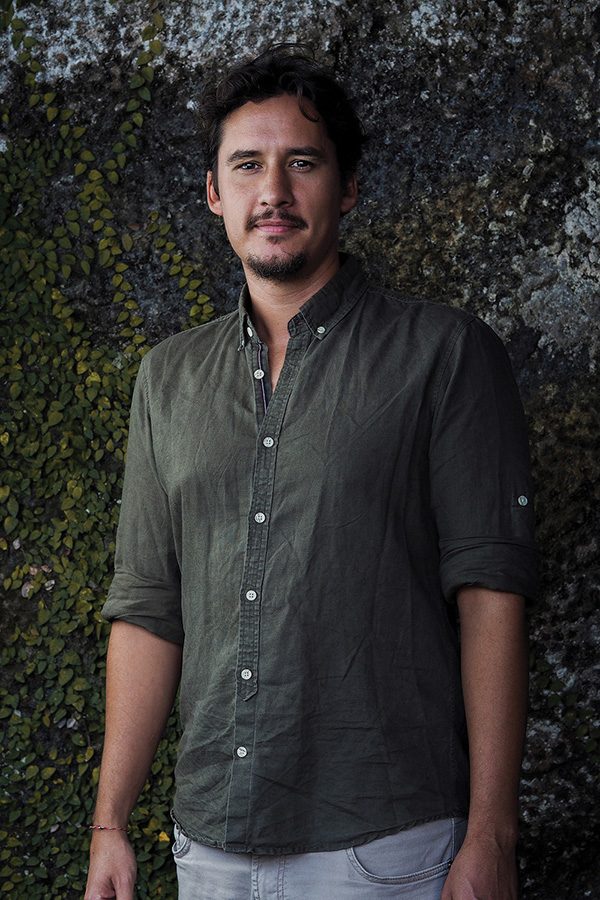
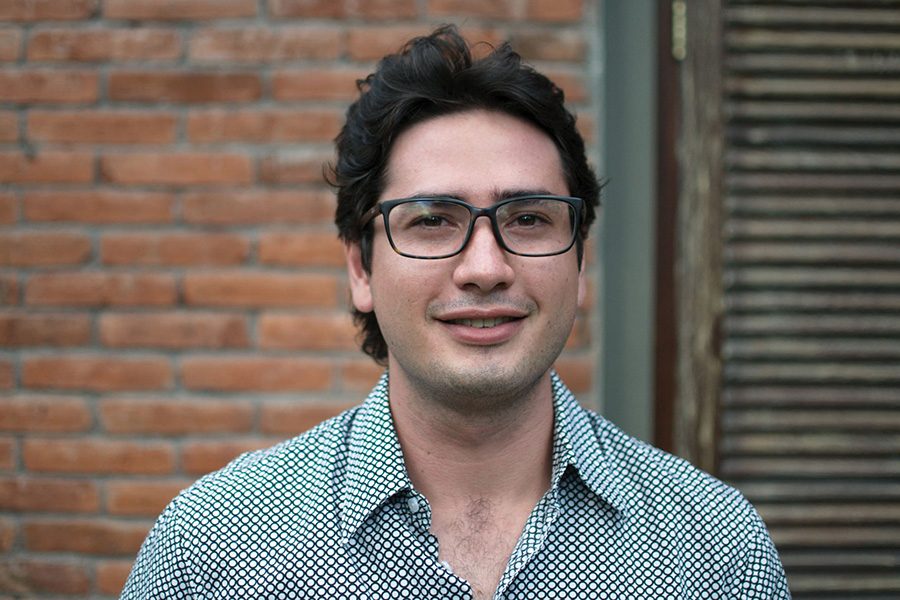
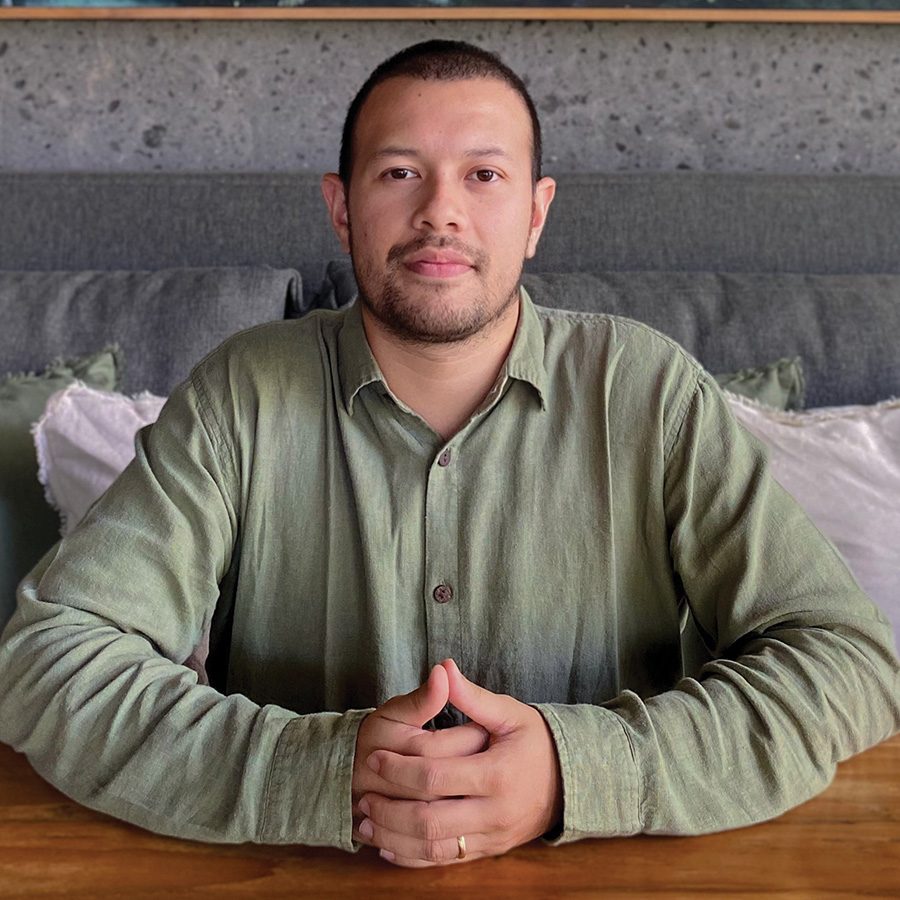
They decided to use their education – Lotze’s in sustainability economics and Fischer’s in hydrogeology – to form Eco Mantra. Besides developing eco-friendly hotels on the island, they work with the green building sector and the government to implement better building regulations and diminish the impact on the environment.
Carbon assessment spreadsheets and separating different types of plastic aren’t particularly fun or sexy, which is why Eco Mantra makes the hotels the storytellers. For example, Potato Head turns its waste oils and plastics into lifestyle products like water bottles, candles and furniture. Anyone can join a sustainability tour and learn about the hotel’s environmentally friendly zero-waste practices, including recycling cooking oil and melting plastic to turn into homewares and jewellery.
“Changing mindsets, management, organisation: these things take time,” says Lotze. “But we have a systematic approach to making change – and have made a lot of impact as well.
“We’re not talk; we’re action. We’ve proven a lot of things can be done differently.”
Green is the new gold
For these six pioneering Bali eco-friendly resorts, true luxury means treading lightly.
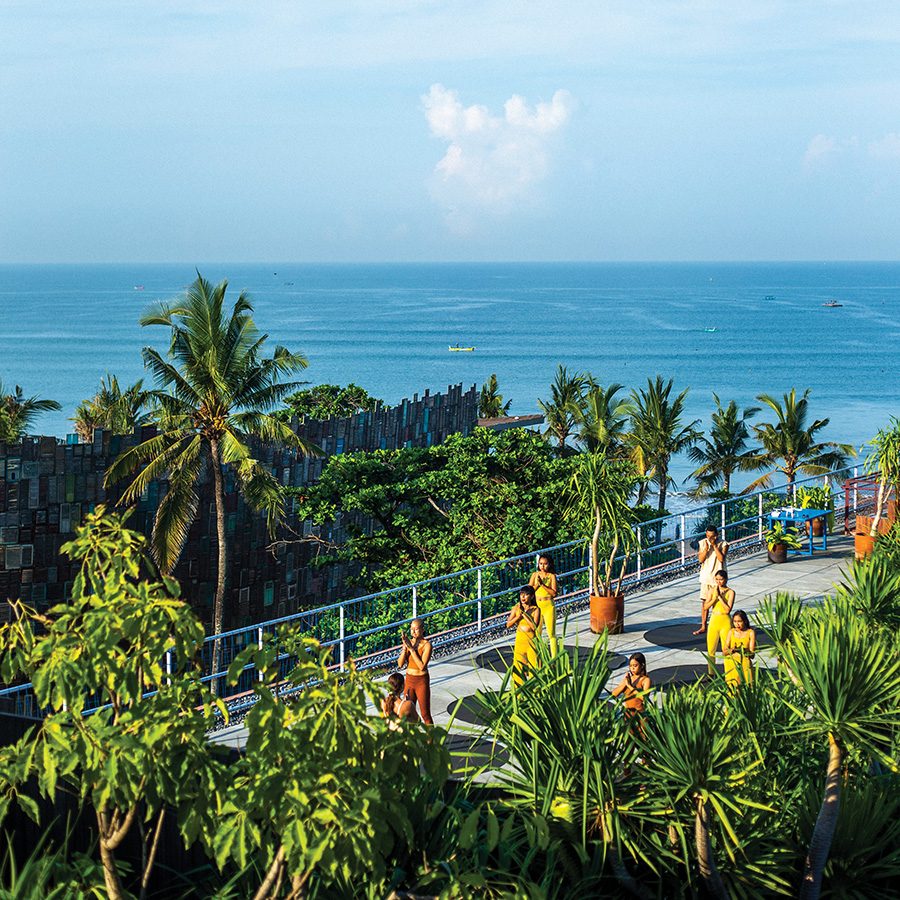
Credit: Potato Head
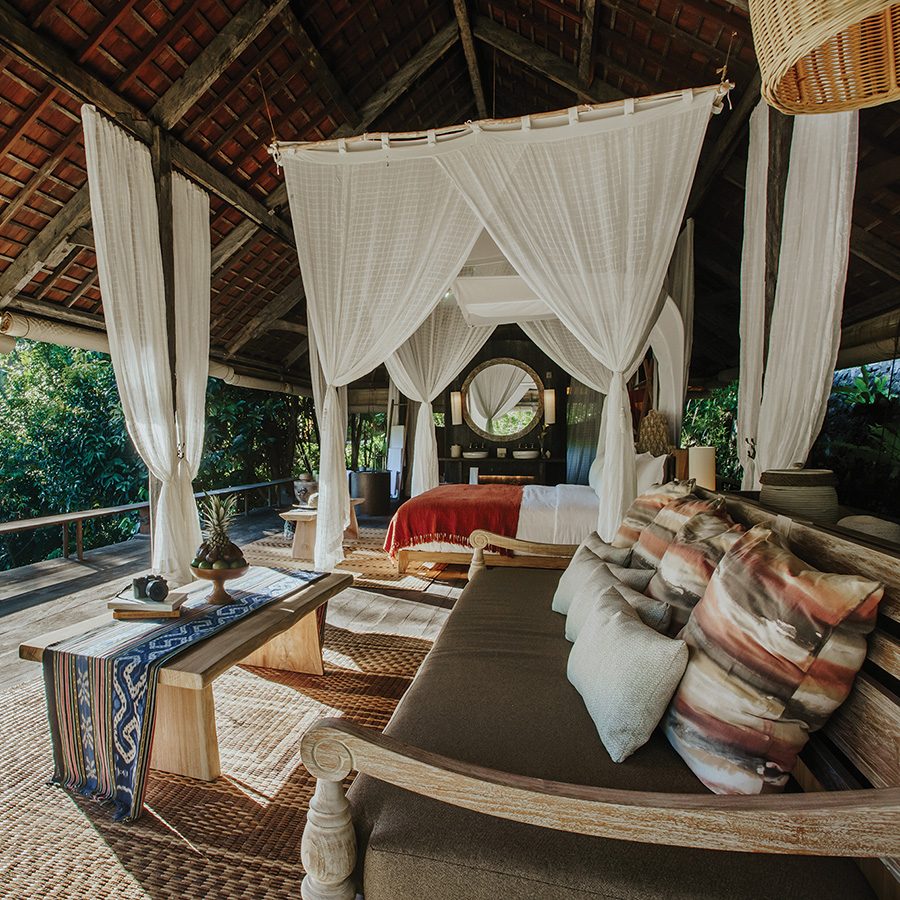
Credit: Potato Head
Desa Potato Head
A transformative force for Bali’s tourism industry, Desa Potato Head is a creative village encompassing a hotel, beach club and co-working space, and its studio accommodation features walls made from discarded bricks, rugs from offcuts and recycled plastic terrazzo – all part of Ronald Akili’s vision for “sustainable beautiful”. In 2020, plant-based restaurant Tanaman opened on-site, offering multisensory dining in a neon-tinged setting.
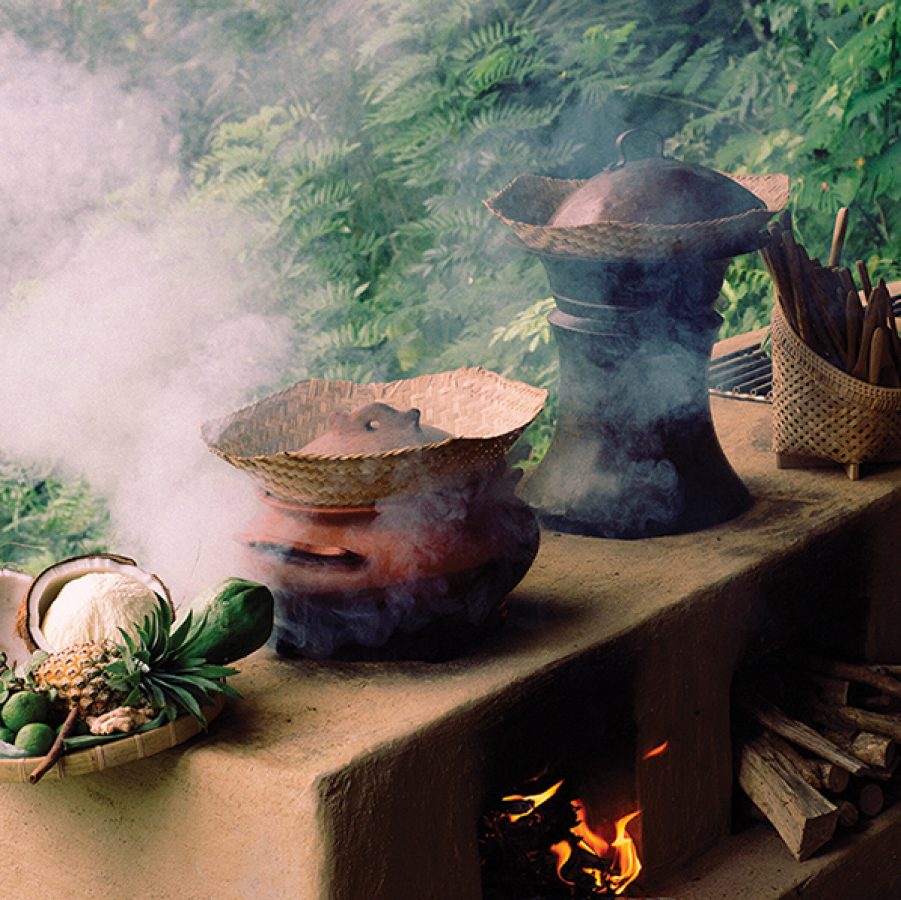
Buahan, A Banyan Tree Escape
Buahan's ultra-private “no walls, no doors” spaces aren’t just a unique way to spend a night in the jungle; they’re a testament to Balinese craftsmanship, made from renewable materials like recycled boat decks. Each room in the luxury resort – or bale – has its own swimming pool, copper bathtub and stunning views of Buahan’s namesake valley. Restaurant The Open Kitchen serves mainly plant-based Balinese dishes, and almost every ingredient is sourced from within a one-hour radius.
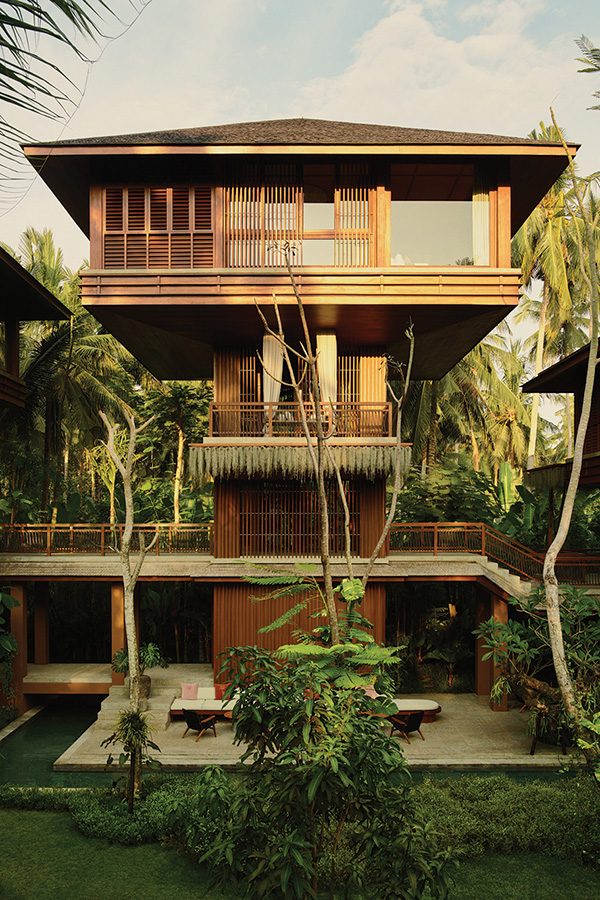
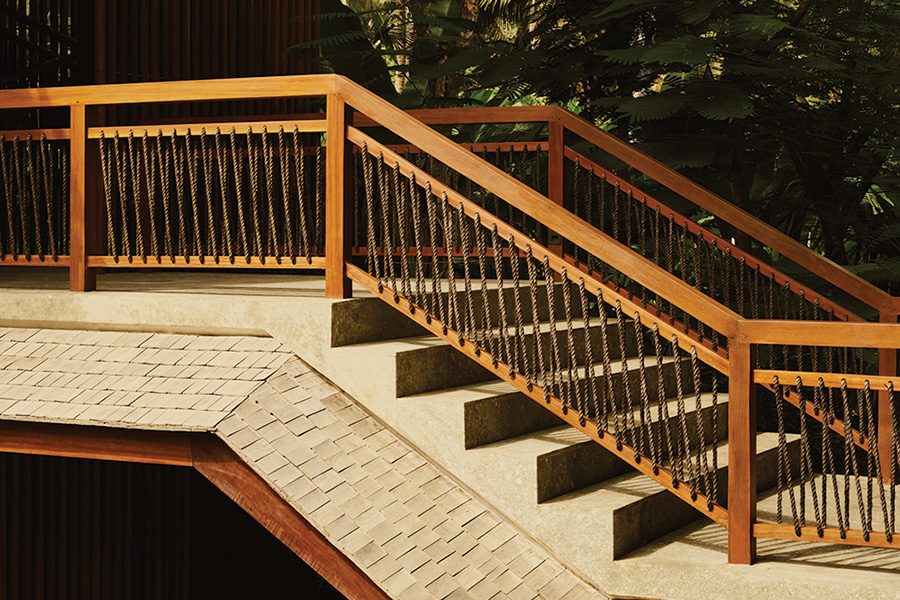
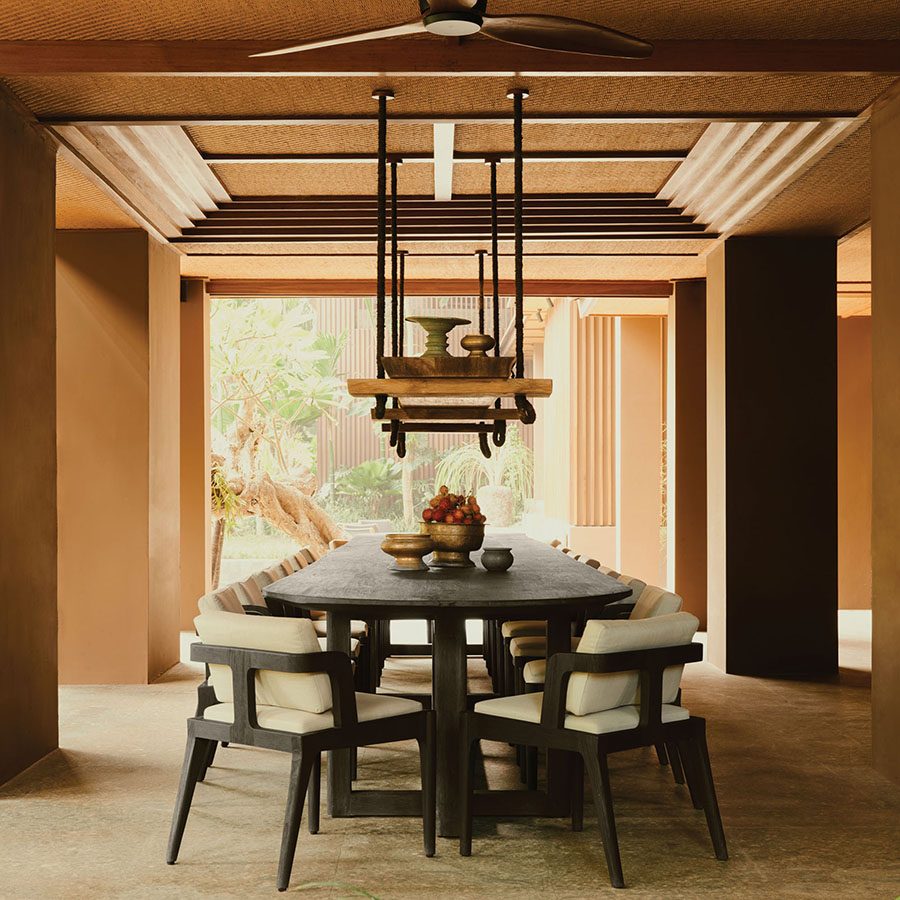
Lost Lindenberg
Eight treehouses rise out of the jungle which hugs a volcanic sand surfers’ beach, and guests wake up to ocean views, greenery and the sound of birds at this eco lodge in Bali. Lost Lindenberg , solar-powered and fully plant-based, is designed to encourage connection with people and nature: food is served family-style in the open air, guests share stories under the stars, and guides lead wild swimming excursions.
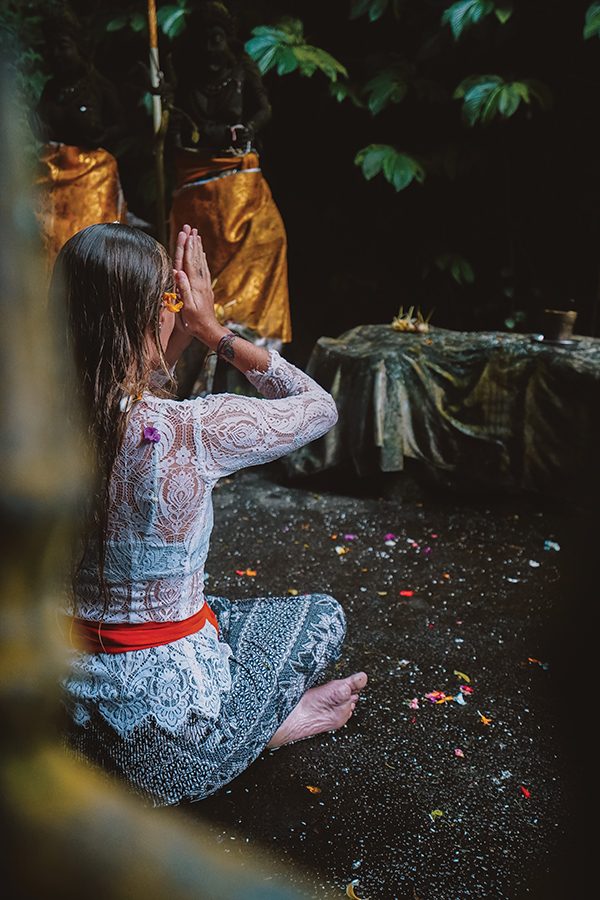
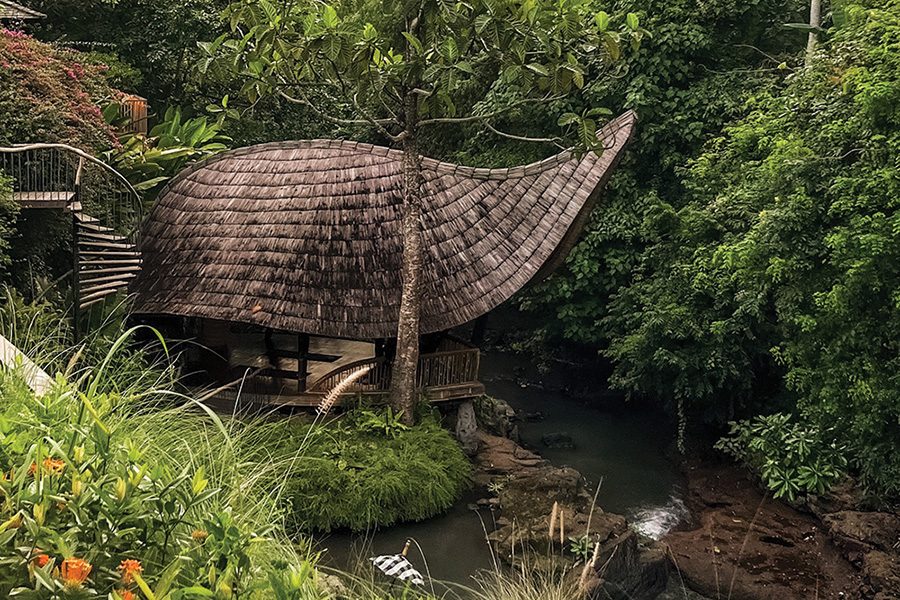
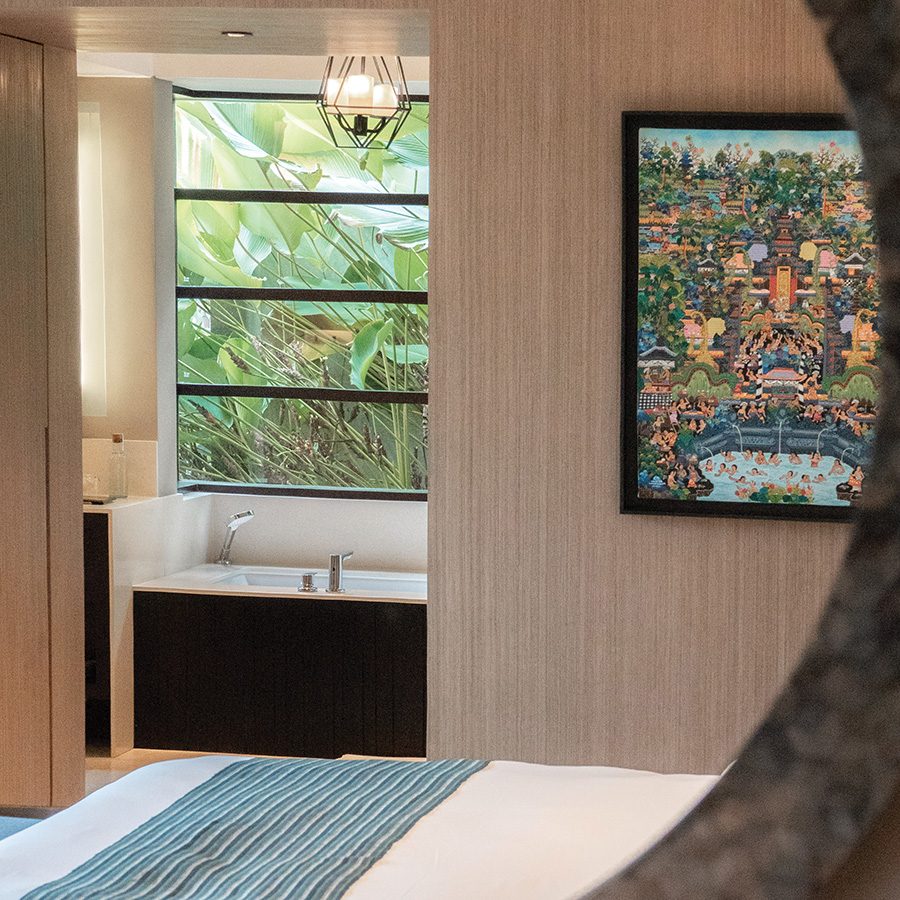
Nirjhara
The design of eco-luxury enclave Nirjhara leverages traditional Balinese construction techniques while adhering to modern minimalism. Take part in yoga classes in the all-bamboo riverside shala, or join a guided bike ride to a nearby temple. Sustainability is by design here, centering on three pillars – community, land and climate – with on-site recycling, sophisticated waste management, regular beach and rice field clean-ups all part of the operation.
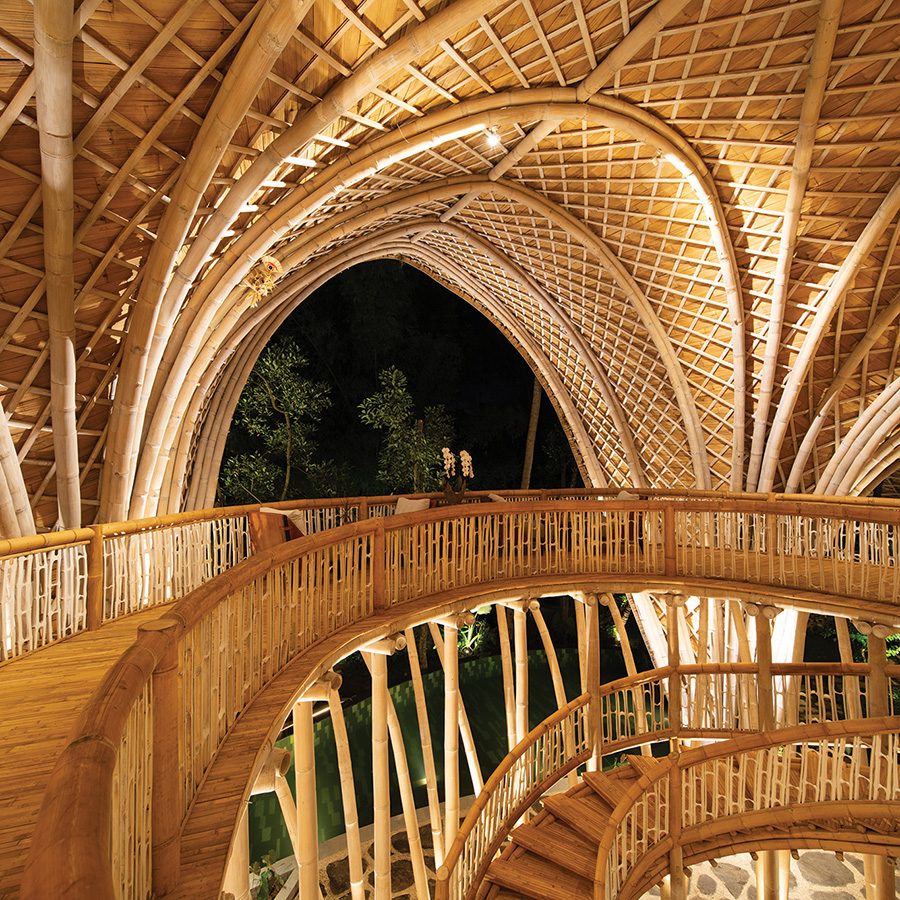
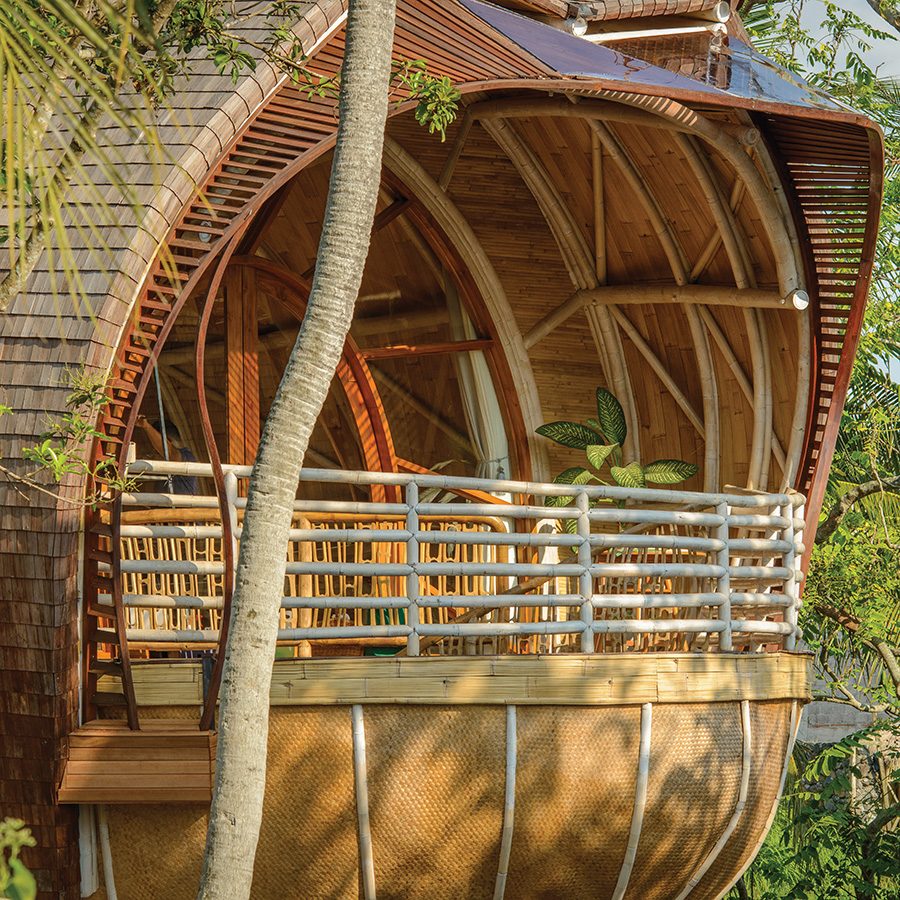
Ulaman
Conscious luxury is exemplified at Ulaman , which uses sustainable technologies and materials to dazzling effect. The jaw-dropping bamboo architecture of its villas earned it a Unesco Prix Versailles award for sustainable architecture. Solar panels and hydroelectric turbines power the resort, which is made from renewable and low-carbon natural materials like rammed earth, bamboo, natural stone and recycled timber.
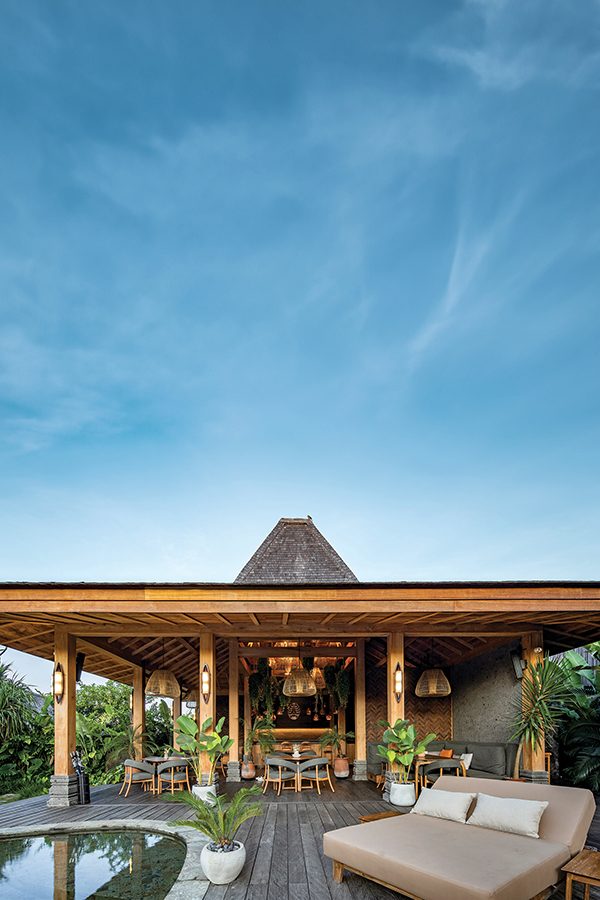
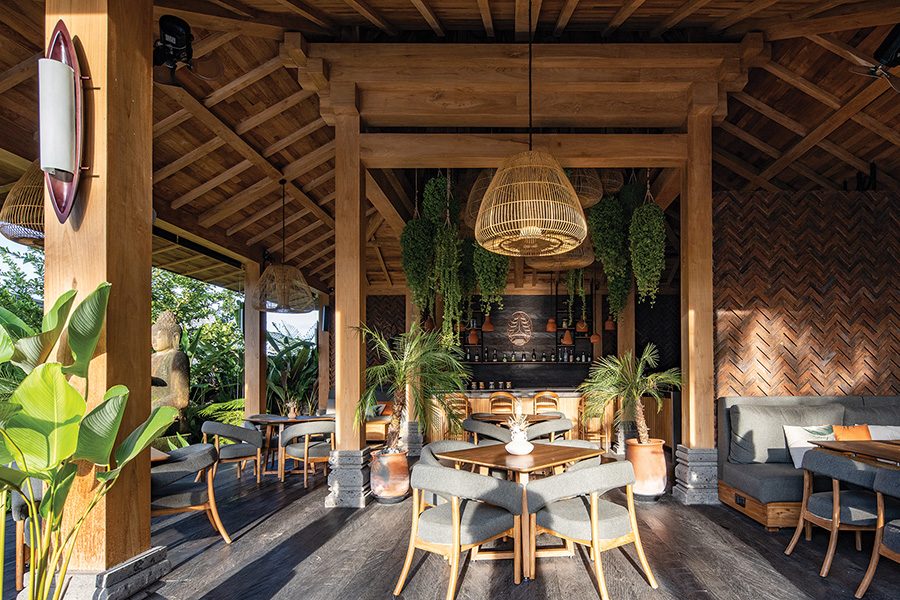
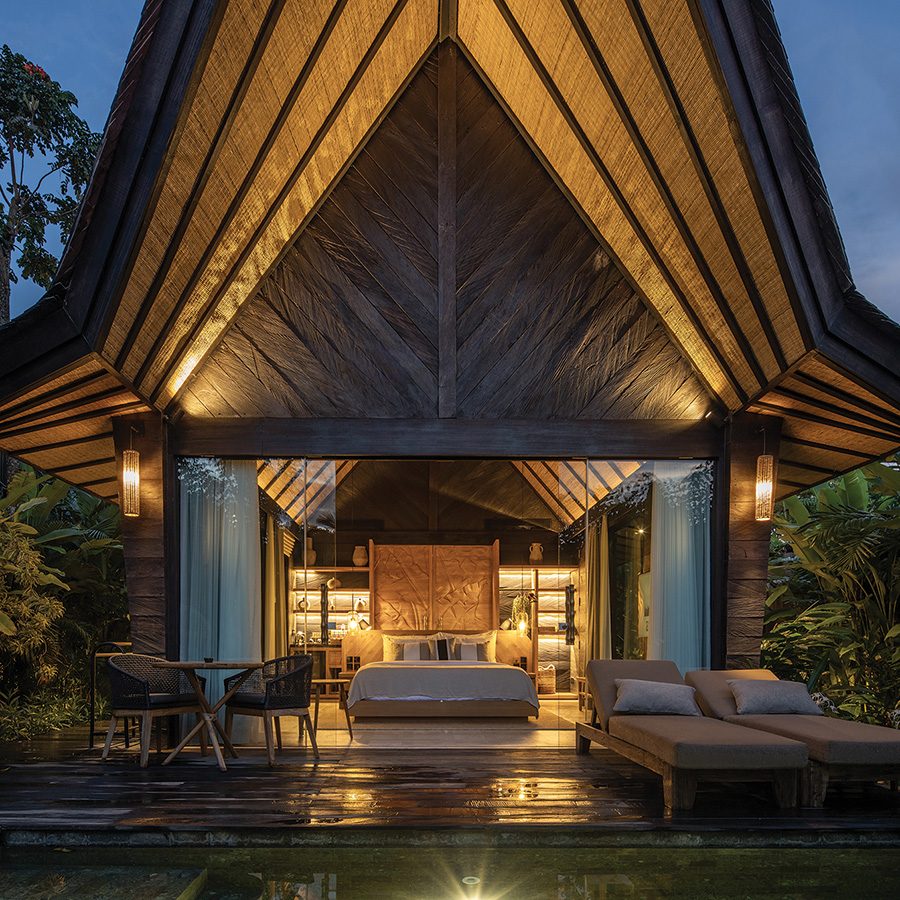
Desa Hay
Desa Hay is an oasis made up of six villas set within private gardens featuring a plunge pool, stone bathtub and rainfall shower. There’s a lot going on behind the scenes: more than 100 solar panels power the property, which is built with four sustainability principles in mind: water use, waste reduction, CO2 neutrality, and community and culture.
Explore other sustainable experiences in Bali here.
More inspiration
Bali travel information
- China – the Chinese Mainland, Hong Kong SAR, Macao SAR and Taiwan Region
- Hong Kong SAR - English
- Chinese Mainland (China) - English
- Taiwan, China - English
- 香港特別行政區 - 繁體中文
- 中国內地 - 简体中文
- 中國台灣 - 繁體中文
- Africa
- South Africa - English
- Asia
- Bangladesh - English
- Korea - English
- Singapore - English
- Cambodia - English
- 한국 - 한국어
- Sri Lanka - English
- India - English
- Malaysia - English
- Thailand - English
- Indonesia - English
- Maldives - English
- ประเทศไทย - ภาษาไทย
- Indonesia - Bahasa Indonesia
- Myanmar - English
- Vietnam - English
- Japan - English
- Nepal - English
- Việt Nam - tiếng Việt
- 日本 - 日本語
- Philippines - English
- Australasia
- Australia - English
- New Zealand - English